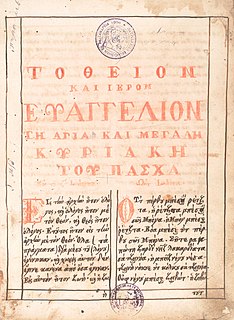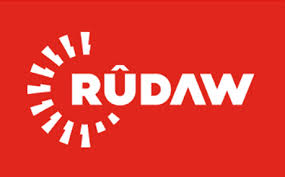Related Research Articles

Kurdish is a language or a group of languages spoken by Kurds in the geo-cultural region of Kurdistan and the Kurdish diaspora. Kurdish constitute a dialect continuum, belonging to Western Iranian languages in the Indo-European language family. The main three dialects or languages of Kurdish are Northern Kurdish, Central Kurdish, and Southern Kurdish.

Central Kurdish, also called Sorani (سۆرانی), is a Kurdish dialect or a language that is spoken in Iraq, mainly in Iraqi Kurdistan, as well as the provinces of Kurdistan, Kermanshah, and West Azerbaijan in western Iran. Sorani is one of the two official languages of Iraq, along with Arabic, and is in administrative documents simply referred to as "Kurdish".

The Kurdish languages are written in either of two alphabets: a Latin alphabet introduced by Celadet Alî Bedirxan in 1932 called the Bedirxan alphabet or Hawar alphabet and a Perso-Arabic script called the Sorani alphabet or Central Kurdish alphabet. The Kurdistan Region has agreed upon a standard for Central Kurdish, implemented in Unicode for computation purposes.

Kurmanji, also termed Northern Kurdish, is the northern dialect of the Kurdish languages, spoken predominantly in southeast Turkey, northwest and northeast Iran, northern Iraq, northern Syria and the Caucasus and Khorasan regions. It is the most widely spoken form of Kurdish, and is the native language to some non-Kurdish minorities in Kurdistan as well, including Assyrians/Syriacs, Armenians, Chechens, Circassians, and Bulgarians.

Nalî, also known as Mallah Xidir Ehmed Şawaysî Mîkayalî, was born in Khakoo Khol, a village of Sulaymani province. He was a Kurdish poet and translator, who is considered to be one of the greatest Kurdish poets in the Kurdish classical period mainly because of his contribution to the Sorani school of poetry.

Kurdish literature is literature written in the Kurdish languages. Literary Kurdish works have been written in each of the four main languages: Zaza, Gorani, Kurmanji and Sorani. Ali Hariri (1009-1079) is one of the first well-known poets who wrote in Kurdish. He was from the Hakkari region.
Kurdish Christians are Kurds who follow Christianity. Though the majority of Kurds due to the spread of Islam in the 7th century were converted, there still remained Kurds who had adopted Christianity. Modern times the majority of Kurdish Christians are evangelicals, evangelical Kurdish churches have been established and can be found in Erbil, Selimani, and Duhok in the Kurdistan region of Iraq, and in Hassakeh, Qamishli, Kobani, Amouda, and Afrin in the Autonomous Administration of North and East Syria.

Syriac is a dialect of Aramaic. Portions of the Old Testament were written in Aramaic and there are Aramaic phrases in the New Testament. Syriac translations of the New Testament were among the first and date from the 2nd century. The whole Bible was translated by the 5th century. Besides Syriac, there are Bible translations into other Aramaic dialects.
Bible translations into Cree can be subdivided by dialect of the Cree language. The main dialects are Plains Cree language, Woods Cree language, Swampy Cree language, Moose Cree language, Northern East Cree language, Southern East Cree language, Kawawachikamach, Atikamekw language and the Montagnais language.

The history of Bible translations into Macedonian is connected in its early years with the history of Bible translations into Bulgarian. After the codification of Macedonian in 1945, in 1952 a liturgical edition of the four Gospels was printed as the first official translation into standard Macedonian.
Bible translations into Persian have been made since the fourth or fifth century, although few early manuscripts survive. There are both Jewish and Christian translations from the Middle Ages. Complete translations of the Hebrew Bible and Greek New Testament from original languages were first made in the 19th century by Protestant missionaries.
The modern Vietnamese alphabet chữ Quốc ngữ was created by Portuguese and Italian Jesuit missionaries and institutionalized by Alexandre de Rhodes with the first printing of Catholic texts in Vietnamese in 1651, but not the Bible. Some New Testament extracts were translated and printed in catechisms in Thailand in 1872.
Translation of the Bible into Malayalam began in 1806.The Manjummal translation is the first Catholic version of the Bible in Malayalam. This is the direct translation from Latin. The four Gospels and the Acts of the Apostles were translated by the inmates of the Manjummal Ashram, Fr. Aloysius, Fr. Michael and Fr. Polycarp. The Pancha Granthy came out from Mannanam under the leadership of Nidhirikkal Mani Kathanar in 1924. The New Testament was published in full in 1940. and has influenced development of the modern language.
Biblical translations into the indigenous languages of North and South America have been produced since the 16th century.
The Bible, or portions of it, have been translated into over 1,000 languages of Africa. Many of these are indexed by the Forum of Bible Agencies, Find.Bible site and available online in text and audio form, as print on demand versions, or through churches and book sellers. This effort continues. Not all are (yet) listed below.
Traditionally Russia used the Old Church Slavonic language and Slavonic Bible, and in the modern era Bible translations into Russian. The minority languages of Russia usually have a much more recent history, many of them having been commissioned or updated by the Institute for Bible Translation.
The first portion of the Bible, the Gospel of John, in a Tibetic language was translated by Moravian Church missionaries William Heyde, Edward Pagel, and Heinrich August Jäschke, and later Dr. August Francke. It was printed in 1862 at Kyelang capital of Lahul in Kashmir. The whole New Testament was printed in 1885 in Ladakh. Another version was translated in 1903. So as not to have the problem of various dialectal differences it was translated into classical Tibetan, but this was not understood by most people. Yoseb Gergen, a Tibetan Christian translated the entire Bible, complete in 1935. This version was translated into a dialect of Tibetan Gergen had accidentally stumbled across, and which was understandable by all Tibetans. It was finally published in 1948. This is known in India as the Tibetan OV Bible. Eliya Tsetan Phuntshog published a New Testament in 1970. There is currently a project going on to translate the Bible into the East Tibetan dialect.

Rudaw Media Network, is a media group in Kurdistan Region, Iraq. It publishes in Sorani, Kurmanji, English, Arabic and Turkish. Rudaw Media Network also owns a weekly newspaper in the Sorani dialect with a circulation of 3,000, a Kurmanji version published in Europe, a website in Kurdish, English, Arabic and Turkish and a satellite TV station. The network is funded and supported by Rudaw Company and aims to impart news and information about Kurdistan and the Middle East.
References
- ↑ Kurdish Kurmanji Bible with Ferhengok. Kurdish Bible Society Germany. January 2004.
- ↑ "Destpêk 1 | KURNT Bible | YouVersion". bible.com. Archived from the original on 2021-07-06.
- ↑ "Download the Bible App Now - 100% Free".
- ↑ "Stream Dengê Rastiyê | Listen to podcast episodes online for free on SoundCloud".
- ↑ "Kitebi Piroz |".
- ↑ http://www.rudaw.net/english/kurdistan/22042017